City neurologists have come together to conduct a study on a rare Covid-19 related neurological complication. More than 24 Covid patients in Mumbai developed paralysis due to Guillain-Barré syndrome (GBS), an autoimmune disorder that can be life-threatening without timely treatment. The study hopes to establish a correlation between Covid-19 and GBS. It is being conducted by a team of city-based neurologists and is the first of its kind in India.
The aim of the India-specific study is to develop an India-specific database regarding Covid-19 and GBS that will be sent for scientific publication. “There haven’t been many studies on Covid-19-associated GBS in India. Our study will be first-of-its-kind where the sample size will also be large. Along with hospitals, we are also collecting data from nursing homes,” said Dr Megha Dhamne, principal investigator, and consultant, neurology at L H Hiranandani Hospital, Powai. Dr Dhamne is heading the study. She refused to give any additional information as the paper is yet to be published.
“GBS is considered the prototype of post-infectious neuropathy that usually develops within two to four weeks after an acute infection. It is mainly observed in the last stage of Covid-19 recovery or among completely recovered patients,” said Dr Pankaj Agarwal, senior consultant, neurology, head of movement disorders clinic, Global Hospital, in Parel. He is part of the team of doctors researching the incidence of GBS among Covid patients.
Conventionally, GBS, an auto-immune disorder, is triggered by either respiratory or gastrointestinal viral infections where a patient may go from normal to paralysis in two to three days. The paralysis while reversible if treated early can become permanent if ignored. Symptoms of GBS are similar to those of a stroke with the body’s own immune system attacking its cells instead of protecting them. Afflicted by GBS, nerves of hands and legs are affected, leading to sudden paralysis. In severe cases, breathing may be affected and the patient may require ventilator support.
Over the past three months, city doctors have observed an increase in GBS cases among Covid-19 patients. “In August, neurologists received around seven reported GBS cases among Covid-19 patients in Mumbai. By September-end, the number increased to 24, and I am sure many cases haven’t been recorded as yet,” said Dr Agarwal who has treated two such patients as of November 10.
While GBS is not an uncommon neurological disease – city doctors said they treat around approximately three cases every month – there appears to be a rise in its incidence among Covid patients. Within five to 10 days of the onset of symptoms of Covid-19, cases of GBS have been identified among some patients. Doctors have recommended regular follow-ups by recovered patients. Among the diagnostic tests that help diagnose GBS are magnetic resonance imaging (MRI) of the brain, chest scans, cerebrospinal fluid examination as well as tests for blood inflammatory markers and nerve conduction velocity.
“If diagnosed and treated on time with intravenous immunoglobulin or plasmapheresis, life-threatening complications can be averted. Plasmapheresis helps remove antibodies and other potentially injurious factors from the bloodstream,” said Dr Kedar Toraskar who heads up the critical care section at Wockhardt Hospital, in Mumbai Central. He has treated one Covid-19 patient with GBS. “GBS can occur even among children. In a stroke, we generally observe unilateral paralysis, but GBS can affect both sides of the body. This is a rare neurological complication which can lead to respiratory failure and even death,” said Dr Kedar Toraskar.
Internationally, the incidence of GBS suggests the possibility of a correlation with Covid-19. In June, the United States of America (USA) reported its first case of GBS related to Covid-19. On November 9, Indiana University reported the country’s first pediatric case of GBS in an eight-year-old boy with Covid-19, in the American Academy of Paediatrics. Recently, a study published in the Journal of Neurology, Neurosurgery and Psychiatry found higher-than-expected numbers of GBS cases during the Covid-19 outbreak in northern Italy and a high frequency of GBS among Covid-19 patients.
‘I thought I would not be able to walk again’
Madhavi Dhariya, a 49-year-old resident of Mahad in Raigad, contracted Covid-19 in August. Three weeks after recovery, she complained of excruciating back pain.
Within a few days one side of her face had suffered paralysis and she was referred to Global Hospital in Mumbai on October 17. “The patient came to me in a wheelchair. She had severe back pain which made me suspect GBS,” said Dr Agarwal.
On October 26, she was discharged from hospital and is currently undergoing physiotherapy. “I thought I would not be able to walk due to the weakness in my legs,” said Dhariya.
‘Couldn’t move hands, both legs were frozen’
Mahalaxmi resident Jyotsna Maru, a 38-year-old Bharatanatyam dancer, started complaining of numbness in her hands and face in August. She did not show other conventional symptoms of Covid-19 but tested positive and was admitted to Wockhardt Hospital on August 13.
Soon, her condition started deteriorating and she became completely paralysed. “I couldn’t move my hands to drink water and my legs were completely frozen,” said Maru, who was worried she wouldn’t be able to dance again.
Maru was diagnosed with GBS and doctors immediately began treatment. She was discharged on August 29 and is currently undergoing physiotherapy.
“I will take around five months to start dancing again, but I am happy that I am not bedridden,” said Maru.
By Hindustan Times


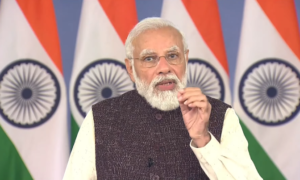

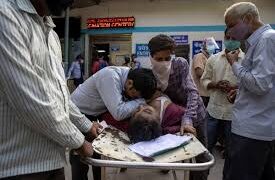

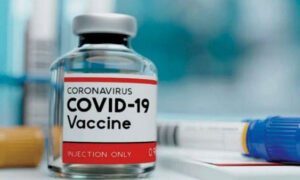





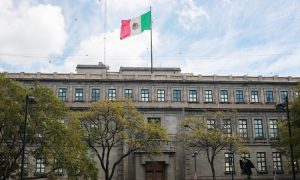



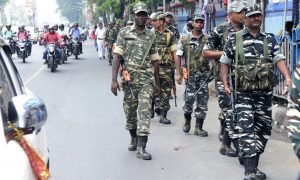











 WhatsApp us
WhatsApp us
Pingback: บ้านมือสอง
Pingback: Medicijnen bestellen zonder recept bij Benu apotheek vervanger gevestigd in Breda